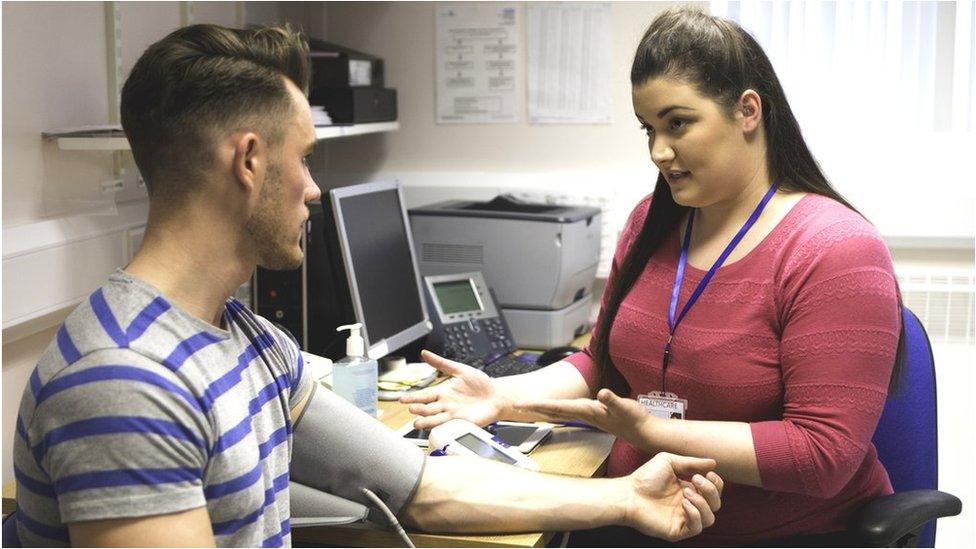Are GP numbers going up or down?
- Published

Health Secretary Sajid Javid was asked on BBC Breakfast if the number of GPs had fallen in the past two years and he said: "No, there's 1,200 more on a full-time equivalent basis."
Later in the day, Labour leader Keir Starmer told BBC News: "We've now got less [GPs] than we had in 2019."
Allow X content?
This article contains content provided by X. We ask for your permission before anything is loaded, as they may be using cookies and other technologies. You may want to read X’s cookie policy, external and privacy policy, external before accepting. To view this content choose ‘accept and continue’.
They are each referring to different figures for the number of GPs.
The full-time equivalent basis that the health secretary was talking about means that instead of counting the number of GPs, you count the number of hours they are contracted to work - so two GPs contracted to work 19 hours a week each would count as just over one full-time equivalent GP.
The Department of Health and Social Care told us Mr Javid was comparing the figures, external for all GPs in England in June 2021 with June 2019, which does indeed give an increase of 1,218.
But the figures that he was using include GPs in training, which is where much of the increase has come from.
If you exclude GPs in training, it turns out that the number of qualified GPs only rose by 101 between June 2019 and June 2021.
Government target
Since June, NHS England has been publishing the figures, external for each month instead of every three months, so we have figures for July and August 2021. But we don't have comparable monthly figures from July and August 2019 to measure them against.
The government promised in December 2019 that it would increase the number of GPs in England by 6,000 by March 2025.
Having trainee GPs is clearly a good sign if the government is hoping to have lots of qualified GPs by 2025.
The number of trainee GPs was 8,632 in August, which was 1,777 higher than it had been in July.
But without the trainee GPs or locums, who fill gaps temporarily for GP practices, the figure for the number of GPs in England has been pretty flat, with a small fall since the government made its pledge.
There were 132 fewer permanent, qualified GPs in England at the end of August this year than there were in December 2019.
In 2015, the then Health Secretary Jeremy Hunt promised 5,000 more GPs by 2020, but the target was not met.
Allow X content?
This article contains content provided by X. We ask for your permission before anything is loaded, as they may be using cookies and other technologies. You may want to read X’s cookie policy, external and privacy policy, external before accepting. To view this content choose ‘accept and continue’.
That was blamed by the British Medical Association on overwork leading to a high retirement rate among GPs and not enough medical school graduates wanting to become GPs.

A SIMPLE GUIDE: How do I protect myself?
AVOIDING CONTACT: The rules on self-isolation and exercise
WHAT WE DON'T KNOW How to understand the death toll
TESTING: Can I get tested for coronavirus?
LOOK-UP TOOL: Check cases in your area



